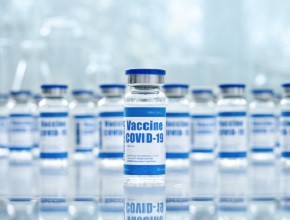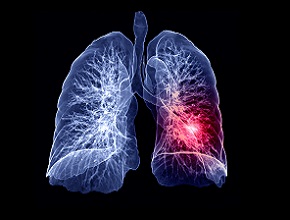Dr Jean-Louis Vincent, professor of intensive care medicine at Université libre de Bruxelles, past president of the World Federation of Societies of Intensive and Critical Care Medicine, and accomplished author and researcher, answers questions from Dr Roman Jaeschke about the current epidemiologic situation in Belgium and about what has changed in coronavirus disease 2019 (COVID-19) management after a year into the pandemic.
For part 2 of the interview, click here.
Roman Jaeschke, MD, MSc: Good morning. Welcome to another edition of McMaster Perspective. I would like to reintroduce a host who we probably… And a guest—especially the guest—whom we’ve enjoyed immensely over the last several months, Professor Jean-Louis Vincent from Brussels, Belgium, the person who needs absolutely no introduction to anybody working in critical care and anesthesiology around the world, probably THE person in these areas.
We had [a] few discussions on COVID-19 at the beginning of [the] epidemic and then in the middle, and now we are in advanced stages. Let me start by [asking a] few more general questions. What’s [the] current situation in Belgium? You were, unfortunately, the leader in terms of infections and deaths to start with. How is Belgium feeling now?
Jean-Louis Vincent, MD, PhD: [We are] actually doing quite well. We are coming out of the third wave and we are going out of lockdown now. The number of cases is decreasing quite substantially and in recent weeks it has not been too bad. Of course, we had a number of patients in our intensive care units (ICUs)—and they stayed for a while—and we may speak about different patient populations than before, but the situation is getting under control. We are thinking that we are indeed leaving this very bad period. We are looking forward to our next meeting that will be a face-to-face meeting at the end of August/beginning of September in Brussels.
Roman Jaeschke: Fantastic. [Do] you think [that] vaccination will win the battle against variants?
Jean-Louis Vincent: Well, clearly. Vaccinations have been really associated with much improvement of the situation and perhaps the best example is the United Kingdom (UK), where there are almost no new cases anymore. Clearly, in Belgium we have been able to vaccinate quite well and, of course, the various European countries work together, those which are in the European Union, but we altogether are doing quite well with our vaccinations.
Roman Jaeschke: I remember we were trying to predict the future about several months ago—and it’s notoriously difficult—but I have a sense that we are probably dealing with COVID-19 somehow better these days. What’s your opinion? In which ways are we better, in which ways are we not after a year into this pandemic?
Jean-Louis Vincent: Well, there is a number of aspects. One is that we learned about the disease itself. We learned [that] it is not just respiratory failure, it’s really a form of sepsis—viral sepsis—associated with the release of cytokines and other mediators, and it can lead to multiple organ failure. Actually from the beginning I argued that patients should not die from respiratory failure in an era of mechanical ventilation and extracorporeal membrane oxygenation (ECMO) when it [mechanical ventilation] doesn’t work. So why would you die from respiratory failure today? When people die, it’s obviously from multiple organ failure. We learned how to intubate the patients at the right time—not too early, not too late. This required some training and personalization of our therapies. In Belgium, like in many places, we have used the helmet protection, which can limit the spreading of viruses and at the same time provides an efficient mode of respiratory support.
We also learned in terms of therapeutic interventions, of course, about dexamethasone or corticosteroids in a broad sense. And we believe that tocilizumab indeed works. Studies have been a bit controversial. Some studies were more positive than others, but when we put all the evidence together, it is in favor of tocilizumab.
Earlier in the disease you may argue that remdesivir could be an antiviral agent, but we know it doesn’t work very well and the World Health Organization (WHO) actually recommends not using it. We bought quite a bit of remdesivir and, perhaps ironically, we sent our stores to India. We sent our stores to India, we gave it to them, and people criticize that a bit saying we are giving something that is not very efficient. But in the United States (US) they still use remdesivir quite largely, so OK, why not? We are not convinced [that] it is very efficacious, but if it can aid a little bit in countries that are in real crisis, why not?
Otherwise we have the monoclonal antibodies, which are very effective but in the early stages of the disease. So, as soon as the patient arrives to the hospital, we should consider giving these monoclonal antibodies, which are quite costly—more than 1000 dollars for an injection—but they are efficacious in these early stages. It’s not for the ICU. There’s even some evidence that it may be harmful in critically ill patients, so these could be valuable in the early stages of the disease.
As I mentioned when you interviewed me earlier, we could have developed other therapeutic interventions. I think we lost too much time with the hydroxychloroquine story, adding a negative study after a negative study, and this was actually quite sad, as we also wrote early on in The Lancet that we should stop these things. We could have developed other therapeutic interventions that are potentially good.
We also learned [something new] in terms of organization, having other people helping us. We needed to work together in an efficient way. Initially I know [that] in some centers people working in the ICU were very, very busy with their patients and when some others were coming from other departments, they were inviting these others to take care of the additional patients, but that’s not how we should work. We should work in a pyramid fashion, with the ICU doctor supervising the other doctors to increase efficiency and the ICU nurse supervising other nurses. But, you know, this has been indeed ameliorated over time and I think we actually work better and in a better organized, in somewhat smoother way, if I may say so.
Overall we know that the mortality rates have gone down. The best data come from the UK, showing quite clearly that for similar severity, mortality rates have actually decreased. But the populations have changed, too. As you mentioned, there are variants and these variants are clearly more aggressive—the UK variant, of course, the Brazilian or the Indian variants, but… There are many variants. And now we see younger people in our ICUs, no doubt about this. We commonly see patients who are 40 to 45 years old. We see pregnant women. Initially we didn’t see pregnant women, now we start to see some. So, if you want to discuss it further—for our vaccines—that raises, of course, important questions. Will the vaccines remain efficient in preventing infections due to variants? We don’t know, of course. Right now we are hoping that we still keep some efficacy, but who knows. We have to wait.
Roman Jaeschke: That’s the big thing to recognize what we do know and what we don’t know. If I can add one more thing to what you are saying about changes, there is obviously completely different morale and enthusiasm to be among COVID-19-infected patients once you are vaccinated. That was a huge relief to all of us.
Jean-Louis Vincent: Absolutely.
 English
English
 Español
Español
 українська
українська











